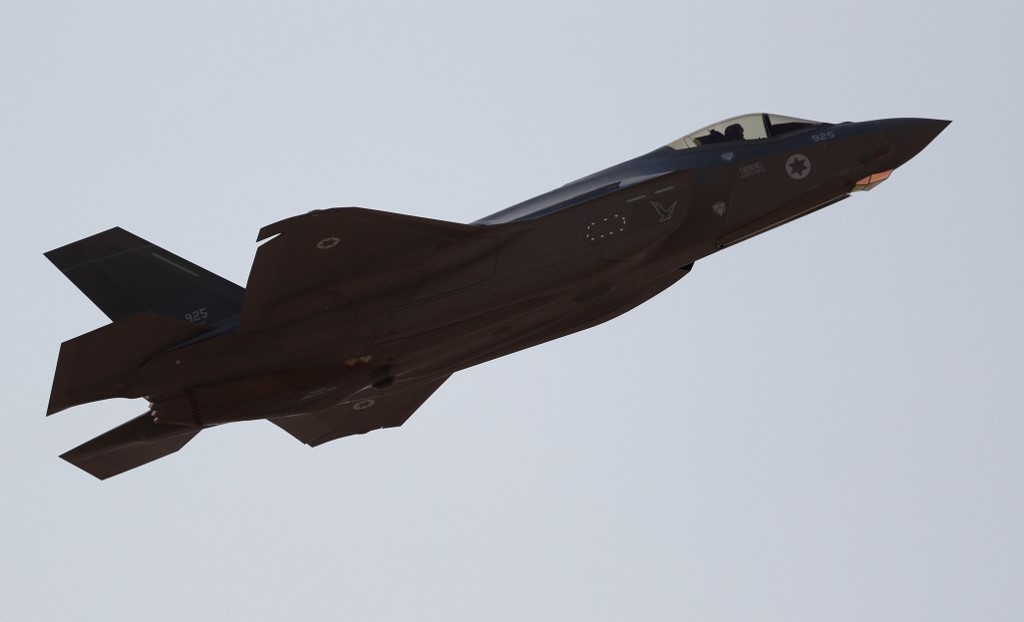Bipartisan House and Senate legislators seek to block US arms sales to UAE

A bipartisan group of House and Senate legislators is seeking to block the Trump administration's proposed weapons sales to the United Arab Emirates, saying it could serve as a catalyst for a future arms race in the Middle East.
Senator Bob Menendez, the top Democrat of the Senate Foreign Relations Committee, led the effort on Wednesday alongside Democrat Senator Chris Murphy and Republican Senator Rand Paul.
"As I tried to warn the Trump administration, circumventing deliberative processes for considering a massive infusion of weapons to a country in a volatile region with multiple ongoing conflicts is downright irresponsible," Menendez said in a statement.
'A sale this large and this consequential should not happen in the waning days of a lame duck presidency, and Congress must take steps to stop this dangerous transfer of weapons'
- Senator Chris Murphy
Last week, US Secretary of State Mike Pompeo announced that the Trump administration had sent a notification to Congress regarding the proposed sale, which includes as many as 50 F-35 fighter jets, 18 Reaper drones, and thousands of bombs and munitions.
In four resolutions put forward by the lawmakers, they opposed the sale of each and every piece of weaponry.
Stay informed with MEE's newsletters
Sign up to get the latest alerts, insights and analysis, starting with Turkey Unpacked
The senators accused Pompeo of rushing through the mandatory congressional review process for arms sales, not responding to a list of questions they had and not addressing how the Trump administration would ensure Israel's qualitative military edge or QME.
Reports of Washington's plans to sell advanced stealth fighter jets to Abu Dhabi first surfaced in August, days after the UAE agreed to normalise ties with Israel in White House-brokered talks.
Until then, the US had not allowed any country in the Middle East to purchase the F-35, except Israel, out of concerns that the military equipment would damage Israel's QME.
QME is a legal requirement for the US to ensure Israel maintains military superiority in the region.
'Dangerous arms race'
Senator Murphy criticised the sale, saying that US weapons could end up in the hands of militia groups in Yemen and Libya, where the senator said the UAE was violating international law.
"I support the normalization of relations between Israel and the United Arab Emirates (UAE), but nothing in that agreement requires us to flood the region with more weapons and facilitate a dangerous arms race," Murphy said in a statement.
"The Emiratis are an important security partner, but their recent behavior indicates that these weapons may be used in violation of U.S. and international law," he said.
Rights groups have called on the US to halt the sale of drones to the UAE, saying that they could be used to further civilian casualties in Yemen and Libya.
On Thursday, Congresswoman Ilhan Omar introduced four resolutions to block the sales, arguing the US should not be selling weapons to "help dictators commit human rights abuses."
"Since he took office, Donald Trump has empowered some of the worst human rights abusers in the world - and the UAE is no exception," Omar said in a statement.
"Besides their very well-documented war crimes in Yemen, the UAE has also been credibly accused of committing war crimes in Libya... We should be investing in our own communities here at home, not selling weapons to help dictators commit human rights abuses."
While the measures offer a rebuke to the outgoing Trump administration, they are likely to fail in stopping the president from going forward with the sale.
If the measures pass through both the House and the Republican-controlled Senate, Trump can issue a veto that would require a two-thirds Senate majority vote to override.
Middle East Eye delivers independent and unrivalled coverage and analysis of the Middle East, North Africa and beyond. To learn more about republishing this content and the associated fees, please fill out this form. More about MEE can be found here.





